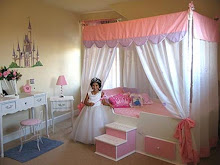Some of the controversy with the Australian child beauty pageant is centered around the hypothesis that "healthy child development" is threatened by child beauty pageants. Because, child beauty pageants promote "increased body dissatisfaction" , " indicates a trend towards increased feelings of ineffectiveness", "greater impulsive behaviors", "difficulty trusting interpersonal relationships". This "study" was conducted by Anna Wonderlich in the Journal of Treatment and Prevention 2005. This is also the ammunition that the Australian parents against child beauty pageants is using to "promote" there views. The assumption is, that child beauty pageants according to Wonderlich is bad for children's development.
...involves the belief that many, if not all, apparent realities are only social constructs, as they are subject to change inherent to time and place. It emphasizes the role of language, power relations, and motivations; in particular it attacks the use of sharp classifications such as male versus female, straight versus gay, white versus black, and imperial versus colonial. Rather, it holds realities to be plural and relative, and dependent on who the interested parties are and what their interests consist in. It attempts to problematise modernist overconfidence, by drawing into sharp contrast the difference between how confident speakers are of their positions versus how confident they need to be to serve their supposed purposes. (Wikipedia on postmodernism)
We have all been privy to the studies of eggs and cholesterol. Some studies according to the Mayo clinic in particular Thomas Behrenbeck, M.D., Ph.D. writes that eggs contribute to high cholesterol levels and should be eaten with caution at best or avoided at worst. Contrast this with, Dr David Katz M.D. who is Director of Yale University's Prevention Research Center, who recently wrote in the Huffington Post saying:
In the case of 'eggs'clusion, I once believed it was right -- and banished eggs from my own diet for the better part of 20 years. But I watched the science as it evolved, and did what scientists are supposed to do: kept pace with it. I have reintroduced eggs back into my my own diet, and into the advise I offer my patients. (http://www.huffingtonpost.com/david-katz-md/usda-eggs-cholesterol_b_820497.html)
We can see by these two conclusions, that realities in "eggs as bad for consumption" varies, even in the medical world where scientific methodology and close analysis in scientific objectivity (truth) can be inconclusive. As we speak, we have two camps of thought concerning eggs, one pro and one con. Both have invested time and money in the research, both have "conclusive evidence" showing that they are scientifically right! Which is why its so important to get more than one medical opinion, because Medical opinions vary substantially.
Postmodernist, would say they (researchers) were never objective in the first place. That the research was intended to solidify a position in the medical industry. Bringing recognition to said researcher, rather than objective proof. The motivation for publication in journals, plays a great factor in medical or social "studies" as a way to increase finances, keep tenure or increase industry recognition. Yet subjective motivations such as these, are rarely ever considered or discussed when analyzing existing data or "studies". In other words, there always exist two sides to a coin.
Perhaps we can also apply this reasoning towards child beauty pageants as well, that is, see it from another angle a healthier angle.
A child beauty pageant parent writes:
my daughter is 17 and has been doing pageants since she was 4 and she is much more well rounded and confident and an all-around amazing person today, because of her pageant experiences. Pageants can be so wonderful for children who want to participate in them- they really give the girls an opportunity to go after goals, learn interview and talent skills, as well as gain so much personal poise, self-confidence and all-around good life skills... learning to be a gracious winner as well as a good sport if you don't win- learning to take turns - learning to go for a goal and try try again- learning that beauty comes from the inside out and it is who you are as a person that makes a difference- that confidence comes from within - that being a good person and doing community service makes a difference, and to never give up on your dreams. I applaud all the children that get up on stage, no matter who they are or where they are from!
As parents, we have vested interest in seeing our children grow up into healthy, confident, and industrious adults. Can it be that Wonderlich's study on child beauty pageants, based on personal experience, be biased? What I personally witnessed at a child beauty contest, was like any other child event where children compete for prizes, honors, or titles. (though it was much more fashion orientated)
Life is full of these events, whether it be scholastic competition or sports events, It's inevitable, proving or showcasing talents will take place whether we like it or not. Showing children to behave in sportsman like quality, showing poise, being confident, achieving goals, these are all positive attributes that contribute in forming centered adults. Also, if taken to an unhealthy level, competition can lead to self-centered behavior. Then again, anything can be taken to a unhealthy level, even the most benign things have proven this.
Toddlers and Tiaras, like any reality TV show capitalizes on drama, and as we all know drama sells. Toddlers and Tiaras, is one vehicle that shows a one sided, perhaps even unhealthy side of child beauty pageants. Then again, it has also popularized and even grown the industry by considerable measures. Which is helpful as exposure, is a desired effect in any business strategy. Either way, there is more to this coin than what meets the eye...


3 comments:
Love your blog this is really amazing and so pretty.... thanks for sharing.
Platform Beds
Glad you liked it, I hope you come back to read so more!
Post a Comment